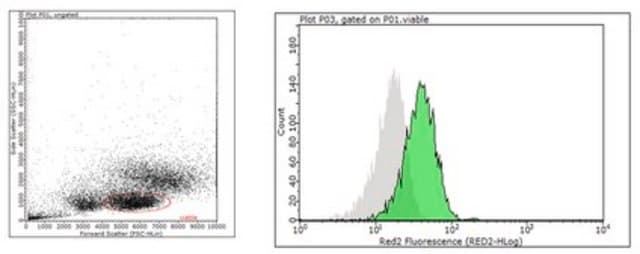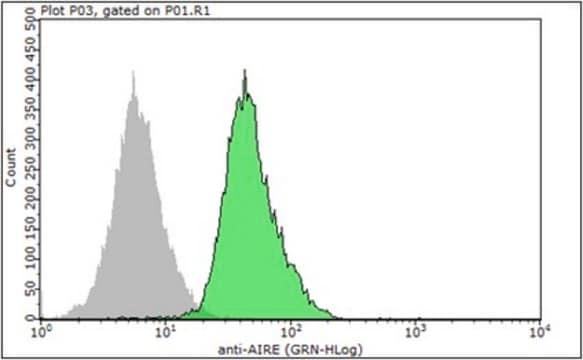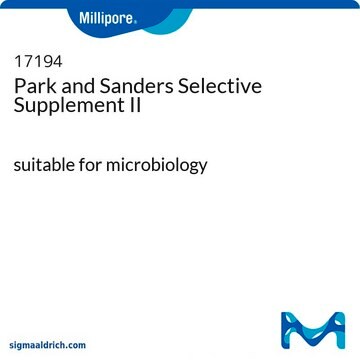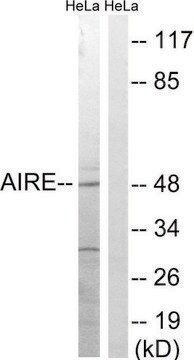09-456
Anti-AIRE Antibody
Upstate®, from rabbit
Sinónimos:
APECED protein, Autoimmune polyendocrinopathy candidiasis ectodermal dystrophy
protein, autoimmune polyendocrinopathy candidiasis ectodermal dystrophy 2
autoimmune regulator
, autoimmune regulator (APECED protein), autoimmune
About This Item
Productos recomendados
biological source
rabbit
Quality Level
antibody form
affinity purified immunoglobulin
antibody product type
primary antibodies
clone
polyclonal
purified by
affinity chromatography
species reactivity
mouse
manufacturer/tradename
Upstate®
technique(s)
western blot: suitable
isotype
IgG
NCBI accession no.
UniProt accession no.
shipped in
wet ice
target post-translational modification
unmodified
Gene Information
mouse ... Aire(11634)
General description
Specificity
Immunogen
Application
Western blot: 1:1000
Inflammation & Immunology
Developmental Signaling
Transcription Factors
RNA Binding Protein (RBP)
Quality
Western Blot:
A 1:1000 dilution of this lot detected AIRE in murine thymus lysate
Target description
Physical form
Storage and Stability
Analysis Note
Murine thymus tissue lysate
Legal Information
Disclaimer
¿No encuentra el producto adecuado?
Pruebe nuestro Herramienta de selección de productos.
Storage Class
10 - Combustible liquids
wgk_germany
WGK 2
flash_point_f
Not applicable
flash_point_c
Not applicable
Certificados de análisis (COA)
Busque Certificados de análisis (COA) introduciendo el número de lote del producto. Los números de lote se encuentran en la etiqueta del producto después de las palabras «Lot» o «Batch»
¿Ya tiene este producto?
Encuentre la documentación para los productos que ha comprado recientemente en la Biblioteca de documentos.
Nuestro equipo de científicos tiene experiencia en todas las áreas de investigación: Ciencias de la vida, Ciencia de los materiales, Síntesis química, Cromatografía, Analítica y muchas otras.
Póngase en contacto con el Servicio técnico








